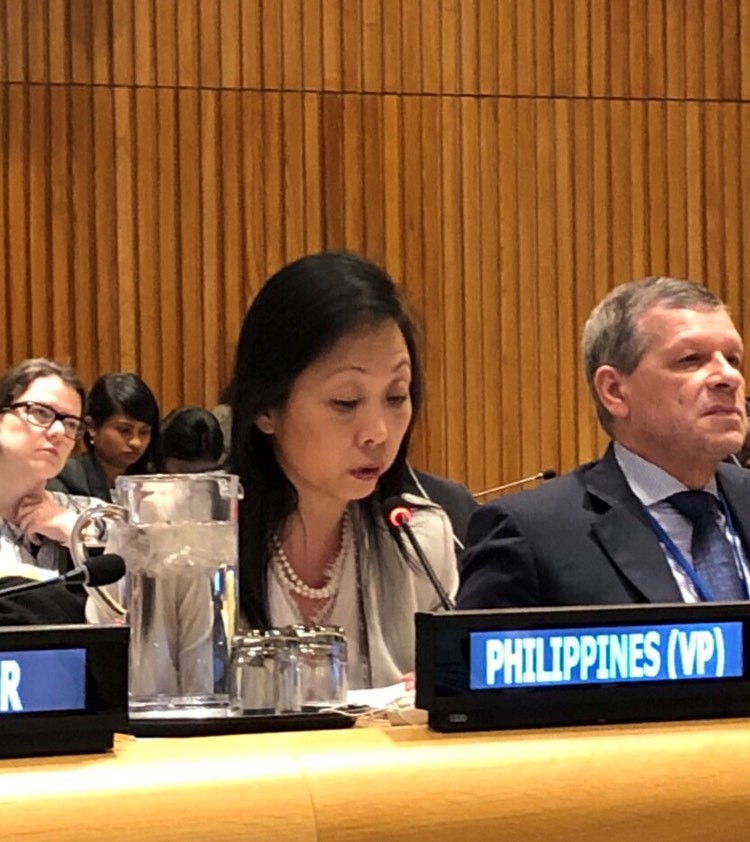
H.E. Ms. Kira Christianne D. Azucena, Charge d’affaires, a.i, and ECOSOC Vice-President, underscores FinTech and financial inclusion towards the achievement of Sustainable Development Goals.
16 April 2019, New York – Chargé d’affaires, a.i. Kira Christianne D. Azucena, ECOSOC Vice-President, stressed that financial inclusion is a key enabler of development during the interactive dialogue of the 2019 ECOSOC Financing for Development held on 16 April 2019 at the UN Headquarters, New York.
Citing the 2019 Financing for Sustainable Development Report, CDA Azucena underlined the need to reach underserved markets, facilitate access to finance, and address the decline of corresponding banking relationships.
She said that FinTech can help close the remaining access gap, noting that more than half a billion people opened an account and gained access to financial services between 2014 and 2017 in large part due to the growth of FinTech.
On access to finance, CDA Azucena stressed that the limited information about companies’ creditworthiness is one of the largest obstacles to access to credit for small and medium enterprises. The digitalization of payments and big data open new possibilities to address this issue, so lenders can issue credit faster and at a lower cost. In some cases, digital lending tools have brought down ‘time to cash’ for small business lending from an average of 3 months to less than 24 hours. Technology also enables new lending solutions such as peer-to-peer lending platforms and supply chain financing platforms, which have experienced rapid growth.
“The decline of correspondent banking relationships continues amid increased costs of maintaining them, which can be attributed in part to the cost of anti-money laundering regulation. Since correspondent banking facilitates cross-border movements of funds, this decline has severe implications on trade finance and remittances,” CDA Azucena stated.
She cited that digital platforms and FinTech could help reverse the decline in correspondent banking by reducing the administrative costs related to due diligence processes.
She called on the need for policymakers to strike a balance between managing emerging risks and maximizing the benefits associated with new FinTech players.
Speaking from national experience, CDA Azucena noted that the Philippines has made financial inclusion a priority through its National Strategy for Financial Inclusion. This strategy is based on 4 pillars: a.) policy regulation and supervision; b.) financial education and consumer protection; c.) advocacy; and d.) data and measurement.
The interactive dialogue was held during Special High-level Meeting with the Bretton Woods institutions, the World Trade Organization and the United Nations Conference on Trade and Development. END


